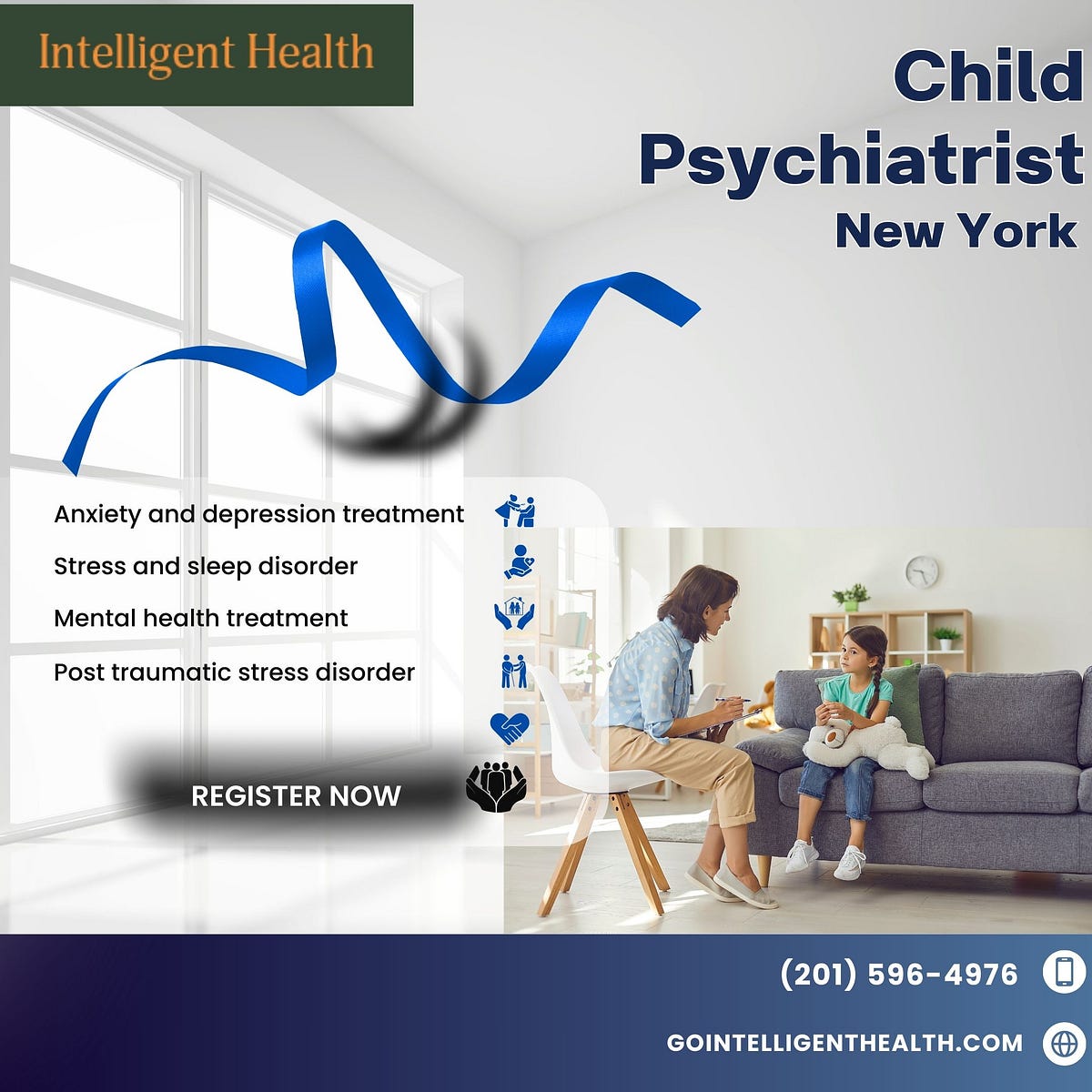Why Is It Important to See a Child Psychiatrist?
In today’s ever-evolving world, children are growing up in a fast-paced environment filled with academic pressure, digital distractions, social complexities, and emotional hurdles. With so much going on, it’s not uncommon for young minds to struggle silently. This is where the role of a Child Psychiatrist becomes essential.

Recognizing the value of consulting a child psychiatrist can be life-changing — not just for the child, but for the entire family. Understanding their role helps parents act early and effectively.
What Does a Child Psychiatrist Do?
Unlike school counselors or general therapists, child psychiatrists can evaluate emotional, behavioral, and biological aspects of mental health — and prescribe medication if needed.
Their expertise allows them to work with a wide spectrum of issues, such as:
Generalized anxiety and panic disorders
Depression and emotional withdrawal
ADHD (Attention-Deficit/Hyperactivity Disorder)
Autism and developmental challenges
Aggressive or defiant behavior
Emotional trauma and grief
Sleep irregularities
Eating-related concerns
They provide comprehensive, individualized care that goes beyond surface-level symptoms.
Growing Mental Health Concerns in Children
The number of children facing mental health challenges has surged in recent years. Unfortunately, emotional struggles are often overlooked or mistaken for typical childhood phases. But when left untreated, these struggles can escalate into deeper, long-term issues.
Some red flags include:
Unexplained mood swings or emotional outbursts
Difficulty focusing or sudden drop in school performance
Withdrawing from friends or family
Trouble sleeping or recurring nightmares
Excessive fear, worry, or sadness
When such behaviors persist, they may indicate deeper psychological concerns that require professional support.
Early Intervention Makes a Lasting Difference
Mental health issues don’t simply go away with time — they can grow more complex if ignored. Getting support early allows children to understand their feelings, build resilience, and develop healthy ways to cope with stress and emotions.
The sooner a youngster gets assistance, the better. Early psychiatric intervention can improve school performance, strengthen relationships, boost confidence, and reduce the risk of more severe mental health issues later in life.
Personalized Care for Every Child
Each child has a unique personality, environment, and emotional makeup. That’s why one-size-fits-all solutions rarely work when it comes to mental health. Child psychiatrists take a tailored approach based on a thorough evaluation of the child’s medical history, behavior, emotional responses, and family environment.
They might suggest a mix of the following:
Individual therapy: One-on-one meetings to teach the youngster coping mechanisms and how to express their feelings
Family Counseling: Engages parents and siblings to promote a supportive home environment
Cognitive behavioral therapy, or CBT, aids in reorganizing unfavorable thought processes.
Medication (if needed): Carefully monitored prescriptions to support mental stability
School Collaboration: Coordinating with educators for academic adjustments and emotional support
This integrated approach ensures well-rounded care that evolves with the child’s needs.
Healing the Whole Family
When a child is dealing with mental health challenges, it often affects the entire household. Parents may feel overwhelmed, confused, or even blame themselves. Siblings may feel neglected or unsure how to respond.
Child psychiatrists support not only the child but the family as a whole — equipping parents with communication tools, stress management techniques, and strategies to reinforce healing at home. This strengthens the child’s support system, which is key to their progress.
Understanding the Behavior Behind the Struggles
Sometimes what appears to be misbehavior is actually a cry for help. A child acting out might be dealing with anxiety, depression, or trauma. Rather than punishing or dismissing these actions, a psychiatrist can dig deeper and uncover the underlying causes.
With proper diagnosis and treatment, children who once seemed difficult can begin to thrive — emotionally, socially, and academically.
Preventing Future Complications
Mental health struggles during childhood can echo throughout a person’s life. Without proper treatment, they may lead to chronic issues like depression, substance abuse, low self-worth, or difficulty maintaining relationships in adulthood.
Seeking professional help early on significantly reduces these long-term risks. Intervening during the developmental years gives children the tools to understand themselves, handle emotions, and face the future with confidence.
When Is the Right Time to Seek Help?
If you observe: It may be time to see a child psychiatrist.
Persistent emotional distress lasting several weeks
Changes in appetite, sleep patterns, or mood
Talk or signs of self-harm or hopelessness
Withdrawal from school, friends, or activities
Significant life experiences such as trauma, grief, or divorce
A family history of mental health conditions
As a parent, you don’t need to wait for a crisis to act. If something feels off, trust your instincts. A professional evaluation can offer clarity, reassurance, and a clear path forward.
Final Thoughts
Choosing to see a Child Psychiatrist is a proactive, caring decision. It reflects a parent’s commitment to their child’s overall well-being — mental, emotional, and social.
As important as physical health is mental wellness. With the right support, children can overcome challenges, build emotional resilience, and grow into confident, well-adjusted individuals.
Recall that seeking assistance is a step toward recovery and hope rather than a show of weakness. Every child should have the chance to develop into a happy, healthy, and emotionally resilient adult. If you believe your child may be struggling, don’t wait. The right support can change their life.

Comments
Post a Comment